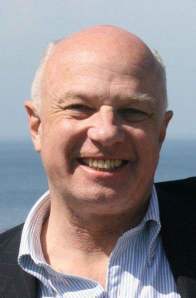The Legacy of Jack Wheeler
 I’ve been thinking a lot, of late, about John Parsons Wheeler III. Wheeler was a driving force for the Vietnam Veterans Memorial, one of the most visited sites in all of America. His murder, almost four years ago, received international attention. His death has been ruled a homicide, by blunt force trauma, a category that covers assaults by an object, like a baseball bat, or a fist. Other than this ruling, however, we seem no closer to an answer now than we did when his body was first discovered.
I’ve been thinking a lot, of late, about John Parsons Wheeler III. Wheeler was a driving force for the Vietnam Veterans Memorial, one of the most visited sites in all of America. His murder, almost four years ago, received international attention. His death has been ruled a homicide, by blunt force trauma, a category that covers assaults by an object, like a baseball bat, or a fist. Other than this ruling, however, we seem no closer to an answer now than we did when his body was first discovered.
The mystery is perplexing. But I’ve been thinking about Wheeler for this and other reasons. A West Point grad, Wheeler served as a soldier in Vietnam. He was a driving force behind the Veterans Memorial. He worked as chairman and CEO of Mother’s Against Drunk Driving, helping to push them to prominence; and as President of the Deafness Research Foundation, where he battled to make tests for deafness in infants standard. He pushed to create effective, modernized schools in Vietnam, through his leadership of the Vietnam Children’s Fund, and sought reconciliation with the country where he served and many of his classmates died in war.
A spiritual man, Wheeler also spoke to friends and family at times about the notion of “grace.” In theology, grace is usually described as a kind of gift that God bestows upon us, not because we deserve it but simply because he desires us to have it.
In the years after Wheeler succeeded in efforts to see the Vietnam Veterans Memorial—“The Wall”—built, stories cropped up of veterans finding each other there after years without contact. Others might hear these stories and think of them as fortunate coincidences. What were the chances that former war buddies, from different parts of the country, would choose to turn up there on the same day and time? Wheeler referred to these coincidences as examples of “grace.”
I remember reading, many years ago, in an interview I can’t seem to find now, the rock singer Bono’s lament that we willingly share intimate details of our lives to friends over dinner, yet if someone mentions the word “grace” everyone will feel embarrassed. Notions of spirit, of religious belief, aren’t just personal. They also seem to risk triggering interpersonal versions of the larger cultural war in play between high-profile atheists and believers. In this milieu, the very idea of something like grace becomes ghettoized. However, I think that Wheeler left behind a sense of grace that lives on after his murder and sits apart from the mystery surrounding his death. The Wall he helped create was a great source of healing for the entire country after the Vietnam War. MADD likely saved many millions of lives with its campaign to stop drunk driving. Many adults can hear, today, became of the work he did with the Deafness Research Foundation. And schools he helped imagine and fundraise for, in Vietnam, are still being built today. His murder remains unsolved. Yet the work he did still touches people, most of whom probably don’t know of the role he played in bettering their lives.
In theological terms, I don’t suppose that the sort of afterlife evident in the story of Jack Wheeler qualifies as grace. However, I think of it as related—a gift people have received, from a man they can’t see.
Steve Volk's Blog
- Steve Volk's profile
- 18 followers



